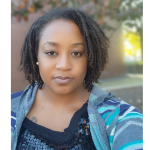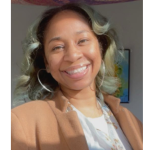“A lot of what I did is serendipitous,†Helen Blank said last month on The 9:30 Call, telling the story of her career. A friend came to dinner and talked her into earning a master’s degree in urban planning. She spent time working for anti-hunger groups. Another friend pushed her to go back to work after her daughter was born.
And: “I was really lucky that I ended up at the Children’s Defense Fund for 24 years.â€
Founded in 1973 by Marian Wright Edelman, the Children’s Defense Fund (CDF) emerged as a national and historic advocate for children. Blank served as CDF’s former Director of the Child Care and Development Division. She was also the Director of Child Care and Early Learning at the National Women’s Law Center.
Blank, in other words, is a bundle of energy, and she has been busy breaking ground and making history. She recently participated in an oral history project, sharing her story and the larger story of advocating for children with Deborah Phillips, professor emerita at Georgetown University. A transcript of the oral history is held by the Sophia Smith Collection of Women’s History at Smith College.
In the transcript, Blank explains the importance of communication and team-building, noting:
“Well, if someone calls you in Colorado and says, ‘I want to enact a pre-K program, what do they do in Alabama?’ Or someone calls and says, ‘Hmm, how did they get those special rates in North Carolina?’ You can talk to them about what other states are doing and the pros and cons of their approach. A good political sense is key to making things work, but I think as a good advocate, you also have to know both facts and strategies, and share these at all different levels. You also have to be respectful of the different environments advocates and [state] administrators face.â€
On The 9:30 Call, Blank offered more lessons, including:
• get the facts right
• provide reports on new and emerging trends
• have a sense of humor
• be persistent, be flexible, be willing to compromise, and
• pay attention to the money
“First, to me, money — and I’ll say this a hundred times —is the most important thing, money and taxes. Don’t shy from either one. Because you can have all the policy in the world. But if you look at the lives of low-income women, and you look at the lives of early childhood educators, and you look at what children need, it’s money, not policy. Don’t depend on one program. You have to use multiple strategies. Pay attention to parents’ needs and to different child care needs. Whether it’s centers, family, friend, and neighbor or family child care, Head Start, pre-K, child care food programs, tax credits — be comprehensive about how you do this.â€
Blank has also been a mentor for younger advocates including Amy Kershaw, commissioner of the Department of Early Education and Care, and Amy O’Leary, executive director of Strategies for Children.
Blank’s advice for the future of advocacy for children:
“I think we still have to be welcoming to everybody to make this work because it is so challenging.â€
“You have to stay together on mixed delivery,†creating a system that includes family child care providers and center care and schools.
“I think it’s important to look at the economics of child care.â€
“…and I think you’re doing great, I mean having watched Massachusetts all the years, you know you are pushing this issue, and it is you know, it’s complicated.â€
“It’s a long slog… and you just have to keep doing it.â€
To learn more — and to be wildly inspired by Blank’s words — check out The 9:30 Call recording and read the oral history transcript.


